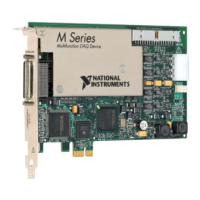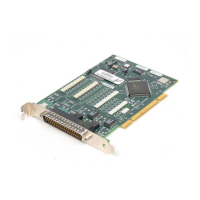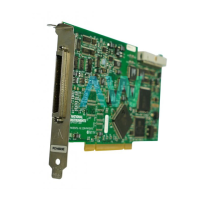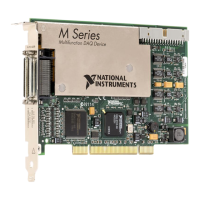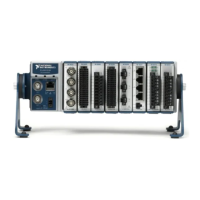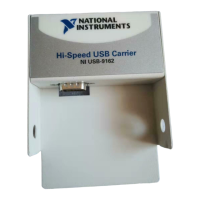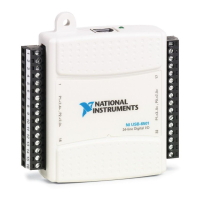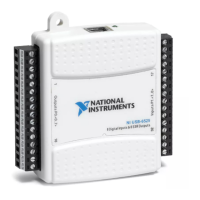© National Instruments | C-1
C
Troubleshooting
This section contains common questions about X Series devices. If your questions are not
answered here, refer to ni.com/support.
Analog Input
I am seeing crosstalk, or ghost voltages, when sampling multiple channels. What does this
mean?
You may be experiencing a phenomenon called charge injection, which occurs when you sample
a series of high-output impedance sources with a multiplexer. Multiplexers contain switches,
usually made of switched capacitors. When a channel, for example AI 0, is selected in a
multiplexer, those capacitors accumulate charge. When the next channel, for example AI 1, is
selected, the accumulated current (or charge) leaks backward through channel 1. If the output
impedance of the source connected to AI 1 is high enough, the resulting reading can somewhat
affect the voltage in AI 0. To circumvent this problem, use a voltage follower that has
operational amplifiers (op-amps) with unity gain for each high-impedance source before
connecting to an X Series device. Otherwise, you must decrease the sample rate for each
channel.
Another common cause of channel crosstalk is due to sampling among multiple channels at
various gains. In this situation, the settling times can increase. For more information about
charge injection and sampling channels at different gains, refer to the
Multichannel Scanning
Considerations
section of Chapter 4, Analog Input.
I am using my device in differential analog input ground-reference mode and I have
connected a differential input signal, but my readings are random and drift rapidly. What
is wrong?
In DIFF mode, if the readings from the DAQ device are random and drift rapidly, you should
check the ground-reference connections. The signal can be referenced to a level that is
considered floating with reference to the device ground reference. Even if you are in DIFF mode,
you must still reference the signal to the same ground level as the device reference. There are
various methods of achieving this reference while maintaining a high common-mode rejection
ratio (CMRR). These methods are outlined in the
Connecting Analog Input Signals section of
Chapter 4,
Analog Input.
AI GND is an AI common signal that routes directly to the ground connection point on the
devices. You can use this signal if you need a general analog ground connection point to the
device. Refer to the
When to Use Differential Connections with Ground-Referenced Signal
Sources
section of Chapter 4, Analog Input, for more information.
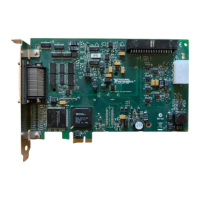
